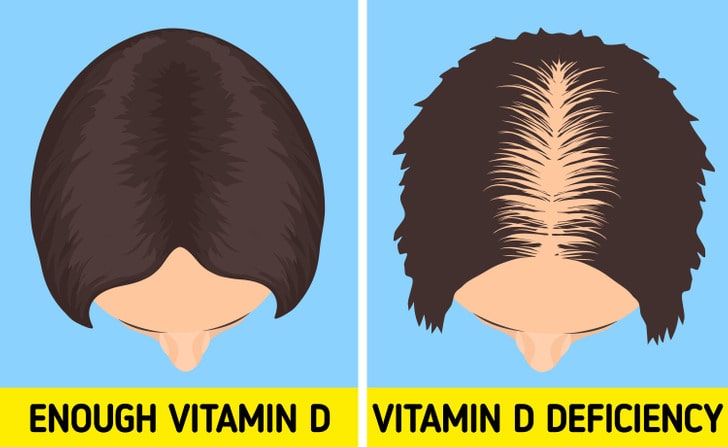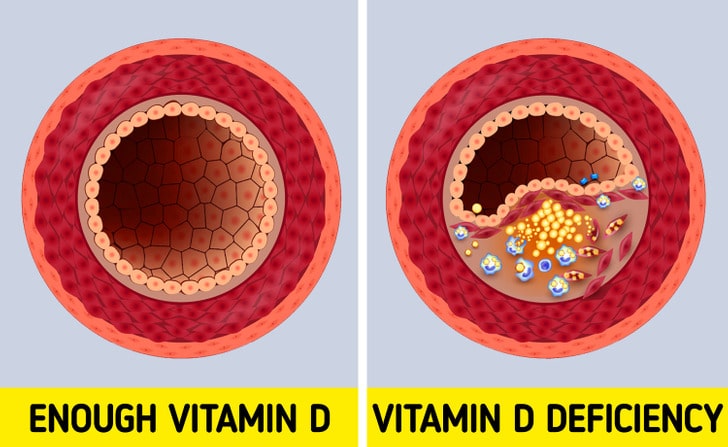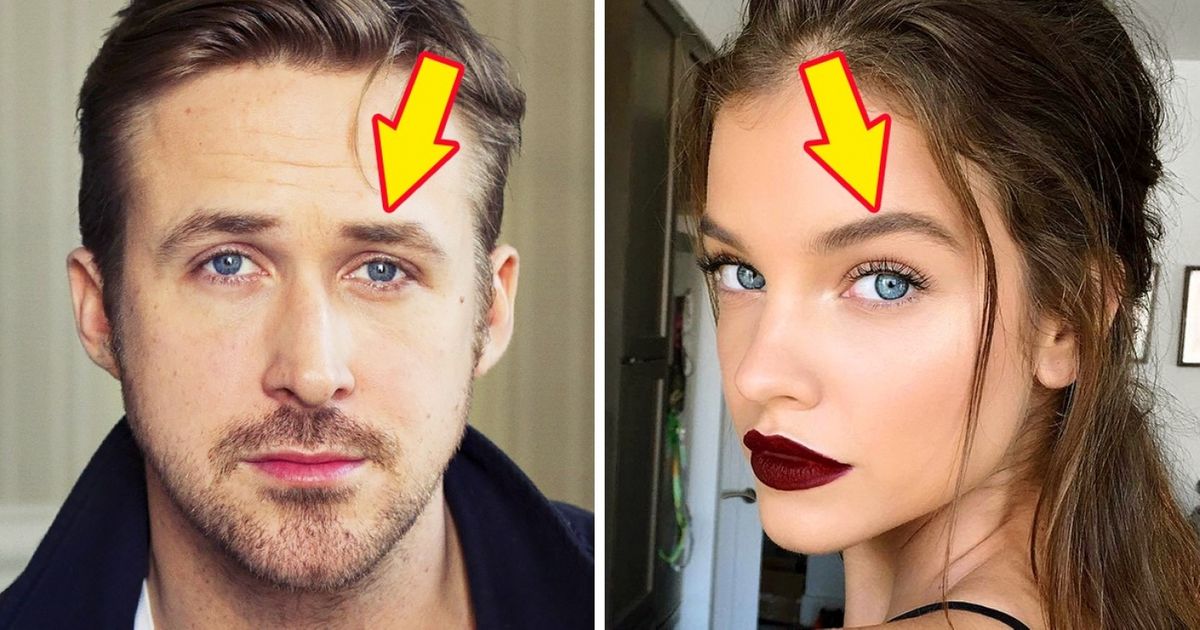It is estimated that around one billion people worldwide are deficient in vitamin D. The number is huge and this deficiency can lead to many health problems that often require immediate attention from people.
Of course, these symptoms are not only caused by this deficiency but could be one of many reasons. In any case, you should always consult your doctor if you experience any of the symptoms mentioned below.
We want you to have an idea of what a vitamin D deficiency looks like and ways to help increase it in your body.
Hair loss or thinning

Vitamin D is essential for skin cells that process keratin, the protein necessary for hair and nail growth. So, when there is not enough, keratin is not produced at the required levels and our hair suffers.
In fact, vitamin D deficiency is often associated with alopecia and hair loss in both men and women. There are many studies and investigations that have concluded with the same results, which means that changes in our diet are necessary.
Trouble sleeping
This vitamin plays a very important role in having successful sleep patterns. Studies have shown that having a deficiency can lead to insomnia, interrupted sleep, less restful sleep, and less sleep.
In some people, it can even cause sleep apnea, in which breathing is unregulated and disrupts sleep at night.
More frequent illnesses

One of the shields that your body and immune system can have as a defense against diseases and viruses is vitamin D. So when your body does not have this vitamin, it is much easier for you to contract viruses and get sick frequently.
Colds, bronchitis, and pneumonia can occur much more easily when vitamin D is lacking. In other words, this vitamin is very important for your respiratory system and maintaining your health.
Bone and joint pain
Studies have shown how vitamin D deficiency increases the chances of getting rheumatoid arthritis later in life. This is because it helps maintain bone mass in our body by aiding in the absorption of calcium.
Another scientific review showed that people with chronic muscle pain and other bone-related problems tended to have lower levels of vitamin D.
Feeling tired all the time
Tiredness can have many causes, including stress, anxiety, depression, and vitamin D deficiency. One study, involving 480 people with vitamin D deficiency, showed that they all experienced fatigue.
This is because weaker bones and muscles can make the whole body feel more tired. Correcting the diet and starting supplements can restore lost energy.
How to increase your vitamin D levels
Food sources: Improving your diet should always be your first choice, and foods like fatty fish, egg yolks, fortified milk, and yogurt are good sources of vitamin D.
Supplements: You can ask your doctor what dose is best for you to consume daily. But you don’t need a prescription to get vitamin D supplements, as you can buy them without a prescription.
Sunbathing: While this is the most natural way to get vitamin D, you should be careful about the times of day you are exposed to sunlight. It is best to apply sunscreen 20 minutes before going out in the sun and avoid the period between 10 am and 4 pm. Be sure to reapply sunscreen after activity, such as swimming, or within 2 hours of the first application.
Are you experiencing any of the symptoms mentioned above? Have you checked your vitamin D levels?
Preview photo credit Depositphotos.com









